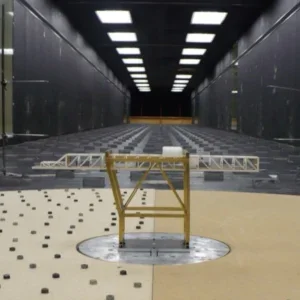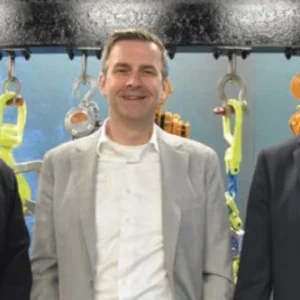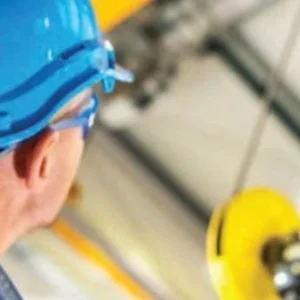I’m writing this on a computer screen, on a version of the page you’re reading right now. I’m being grinned at by an exact replica of my face, which is slightly odd. I won’t list all the other ways in which technology has changed our lives in the past few decades, suffice to say it’s been a revolution in how we do business, from factory to storefront.
In this issue you’ll be able to read a feature on digitalisation in the lifting sector, where efficiency and safety are being taken to the next levels thanks to computer assistance.
There are the computer-based systems that work with human operators to assist them, such as zone control, automatic speed control, and anti-sway systems.
And then there are systems where humans are all but eliminated from the equation, thanks to full automation of the lifting and moving process. Removing human input removes any chance of human error, and maximum efficiency is ensured.
It also reduces the amount of ongoing human labour required, which makes automation one of the great hopes, and great fears, of our age.
Roald Dahl’s children’s book Charlie And The Chocolate Factory follows the story of lead character Charlie Bucket, who starts off as a member of a very poor family. They’re poor because Charlie’s father used to work screwing the caps on toothpaste tubes, but lost his job to a machine.
Not to take Dahl’s fantastical world too seriously, but that book was published in 1964, and we seem to still be no closer now to working out how best to ensure machines and automation improve our lives, rather than causing mass unemployment. Universal Basic Income (UBI) is one idea, although hasn’t been trialled on a large scale as yet.
It seems that technology has improved so exponentially in the last 20–30 years that society hasn’t quite had time to catch up and work out how to make sure it benefits everyone. It will interesting to see what the solution is.
Of course, many jobs can’t be replaced by automation. One of these which affects us is advertising sales. The internet platforms may try, but in a niche like ours, personal attention is key. This month, a new group sales manager joins us. Joe Woolerton has spent a decade working on design titles within the company.
Our publisher, Joe Maughan, told me: “Joe Woolerton really proved himself on Blueprint and FX with his attention to clients and focus on helping them reach customers. He was the ideal choice to take our lifting titles forward, particularly as we expand our digital offering.”
Will North, editor of Cranes Today, and I met with Joe this week. He told us: “While lifting is a new sector for me, I quickly saw what an interesting niche it is. For me, media sales is all about TLC, about listening to customers and helping them with their marketing needs. I look forward to getting out and meeting our advertisers over the coming months.”
If you want to talk to Joe about your advertising needs, you can call him on +44 20 3096 2283, or email him at joe. woolerton@cranestodaymagazine.com.






